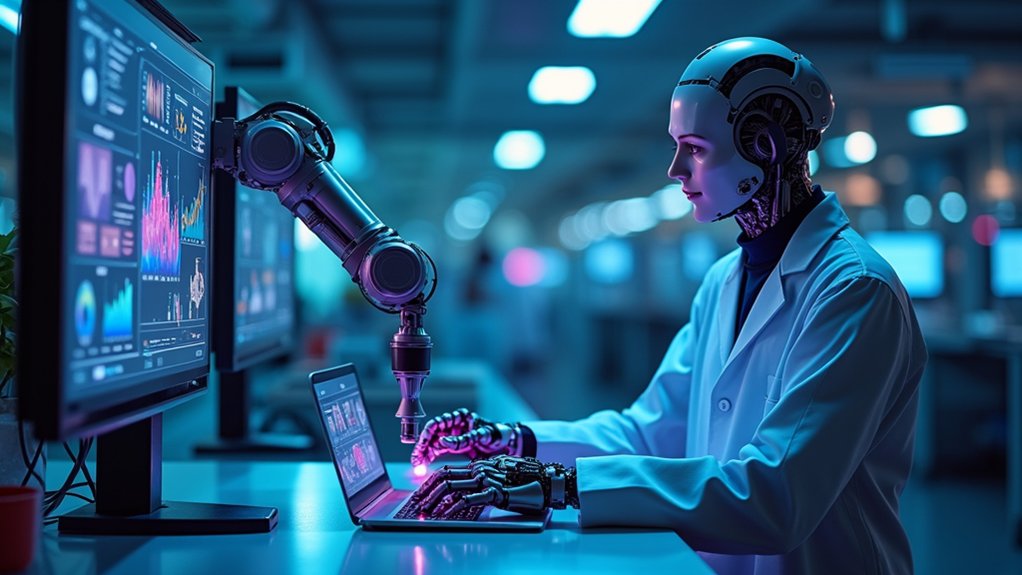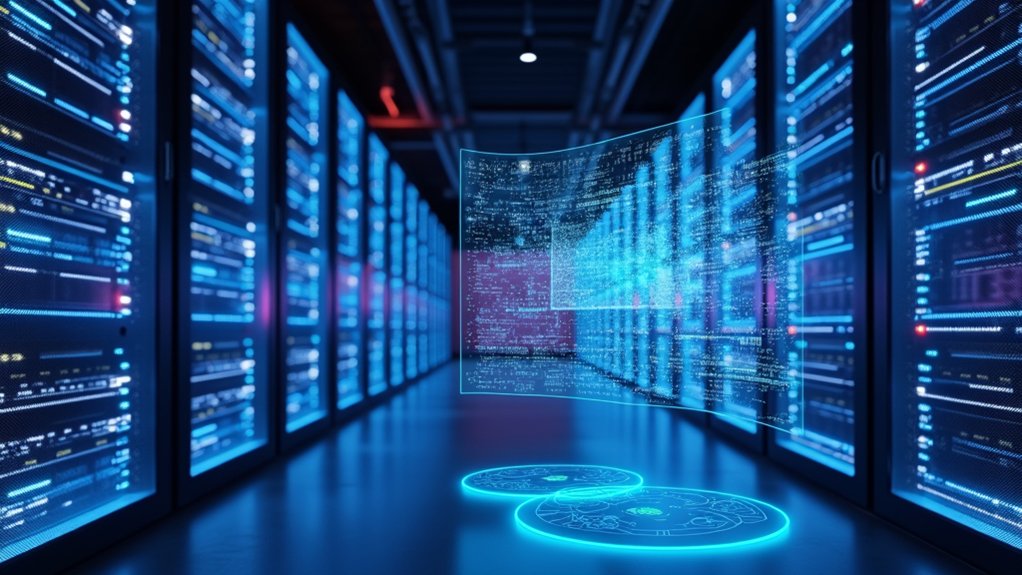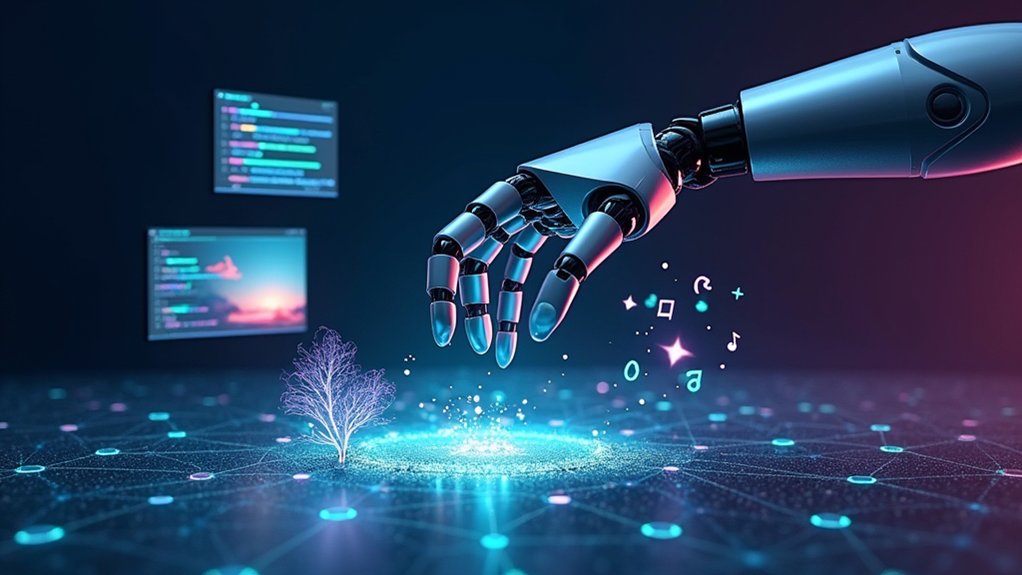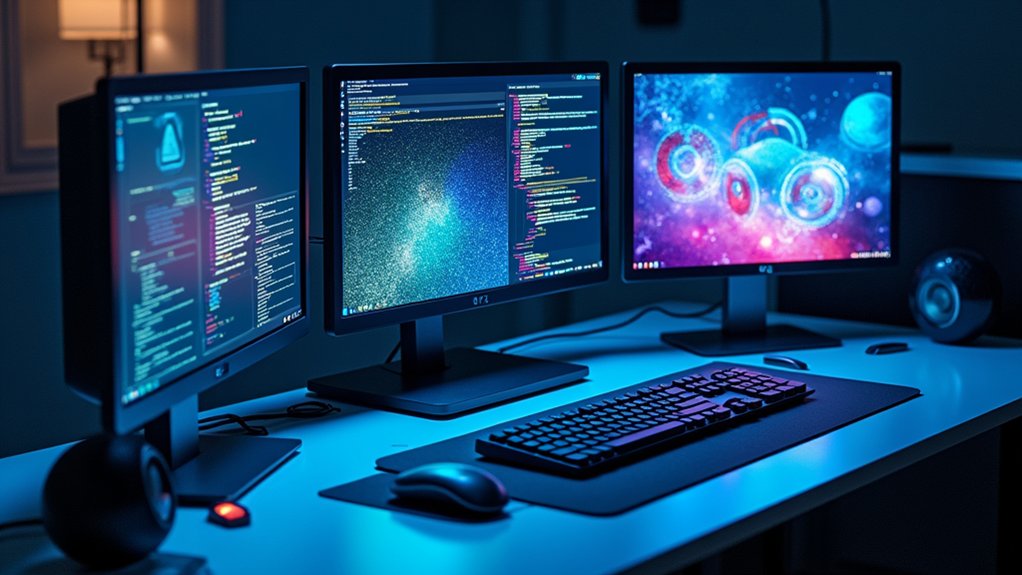Artificial intelligence improves lives by automating routine tasks and boosting productivity. It helps doctors detect diseases earlier and creates personalized treatment plans. AI contributes trillions to the global economy while creating new job opportunities. The technology enhances safety by spotting cyber threats and predicting natural disasters. In education, AI offers customized learning experiences and saves teachers time. The benefits of this technology extend far beyond what most people realize.

As technology continues to evolve, artificial intelligence (AI) is transforming nearly every aspect of modern life. This powerful technology automates repetitive tasks, allowing humans to focus on creative work. AI systems analyze massive amounts of data quickly, helping businesses make better decisions. In factories, AI reduces errors and waste while making production more efficient. It also improves supply chains and provides customer service around the clock through chatbots.
Healthcare has seen remarkable benefits from AI. The technology helps doctors detect diseases earlier and more accurately. It speeds up the discovery of new medicines and allows for more personalized treatment plans. In hospitals, AI monitors patients constantly and assists surgeons with precise movements during operations. AI-enhanced telemedicine is expanding access to quality healthcare in underserved communities across the globe. These improvements lead to better patient outcomes. Virtual health assistants powered by AI enable real-time monitoring of patients' conditions and facilitate early interventions when needed.
AI revolutionizes healthcare through earlier diagnosis, faster drug discovery, and precise surgical assistance, ultimately saving more lives.
The economic impact of AI is substantial. According to PwC, AI could add $15.7 trillion to the global economy by 2030. Particularly, generative AI technologies could contribute up to $4.4 trillion annually to the global economy through productivity enhancements. While some jobs may change, AI creates new positions in development and maintenance. It boosts productivity across industries and drives innovation in global markets.
AI makes us safer in many ways. It spots cyber threats quickly and helps law enforcement predict crime patterns. In aviation and other high-risk fields, AI reduces human error. During natural disasters, it helps predict danger zones and manage emergency responses. Financial institutions use AI to catch fraud before money is lost.
Students benefit from AI through personalized learning experiences. Teachers save time on grading, allowing more focus on actual teaching. The technology makes education more accessible to students with disabilities and helps people learn new languages easily.
For our planet, AI optimizes energy use in buildings and improves climate models. It tracks endangered animals and makes recycling more efficient. Farmers use AI to grow food with less environmental impact.
Daily life improves as AI helps care for the elderly, manages traffic, and makes homes more energy-efficient. For people with disabilities, AI technology creates new ways to interact with the world.
Frequently Asked Questions
How Can We Regulate AI to Prevent Misuse?
Regulating AI requires clear laws and frameworks that balance innovation with safety.
Experts suggest implementing transparency requirements, where companies must disclose how their AI systems work.
Mandatory ethics reviews for high-risk AI applications can prevent harmful uses.
Data privacy protections and security standards are also essential.
International cooperation on AI governance helps create consistent rules across borders.
Regular audits guarantee companies follow these regulations.
Will AI Replace Human Workers Completely?
Research indicates AI won't completely replace human workers.
While AI may displace 300 million jobs globally by 2030 and impact 80% of the US workforce, it's likely to complement rather than replace most positions.
New opportunities are emerging, with the World Economic Forum predicting 69 million new jobs created by AI.
Companies using AI technologies plan to hire more employees, particularly those with specialized skills.
What Privacy Concerns Arise With AI Implementation?
AI implementation raises several privacy concerns.
Companies often collect data without proper consent or transparency. Personal information may be vulnerable to breaches and cyberattacks.
AI systems can infer sensitive details from seemingly innocent data. There's risk of unauthorized access and surveillance.
Algorithms might enable discriminatory profiling. Current privacy laws aren't equipped to address these AI-specific issues, especially with data flowing across international borders.
How Accessible Is AI Technology to Developing Nations?
AI technology remains largely inaccessible to developing nations.
These countries face significant barriers including poor internet connectivity, unreliable electricity, and high hardware costs.
The skills gap compounds the problem, with shortages of AI experts and limited training programs.
Financial challenges such as minimal research funding and lack of venture capital further restrict adoption.
Without extensive national strategies and adequate infrastructure, developing nations continue to fall behind in the global AI landscape.
Can AI Systems Develop Consciousness or Sentience?
Current AI systems can't develop consciousness or sentience. Scientists agree today's AI lacks self-awareness or subjective experiences.
These systems only mimic human-like responses based on algorithms and training data. While some researchers believe future advanced AI might develop consciousness, there's no clear test to confirm this.
The challenge remains in distinguishing genuine sentience from sophisticated mimicry. The question prompts ongoing ethical and philosophical debates.









